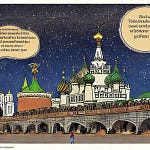India Policy Watch #1: Futility Of Fighting Lies
Insights on burning policy issues in India
— RSJ
I have been following the case of Mohammed Zubair, the co-founder of the fact-checking site Alt News with interest. He was granted interim bail by the Supreme Court a couple of weeks back. You can read more about the story here. I border on free speech absolutism, so my opinion on this case, as with many other similar cases in India, is simple. No one should be jailed for any speech unless they are violating Mill’s harm principle.
In his essay On Liberty, Mill wrote:
“That principle is, that the sole end for which mankind is warranted, individually or collectively, in interfering with the liberty of action of any of their number, is self-protection. That the only purpose for which power can be rightfully exercised over any member of a civilized community, against his will, is to prevent harm to others. His own good, either physical or moral, is not a sufficient warrant.”
But free speech is not the only reason I have brought up the case of Mohammed Zubair here. The case illustrates a point I have made before in this newsletter: while countering lies with fact checks is a noble, worthwhile endeavour, it means nothing in an environment where people are intoxicated with half-truths and grand illusions about a ‘real’ past or an ‘imagined’ future.
A few years back, I came across this wonderful essay ‘Monopolize the Pretty Lies’ by Bryan Caplan. While I understood it back then, reading it again now is insightful.
Caplan writes:
What then is the primary purpose of censorship? It’s not to suppress the truth – which has little mass appeal anyway. The primary purpose of censorship is to monopolize the pretty lies. Only the powers-that-be can freely make absurdly self-aggrandizing claims.
Human beings like to say – and think – whatever superficially sounds good. Strict censorship allows rulers to exploit this deep mental flaw. If no one else can make absurd lies, a trite slogan like, “Let’s unite to fight for a fantastic future!” carries great force. Truthful critics would have to make crowd-displeasing objections like, “Maybe competition will bring us a brighter future than unity,” “Who exactly are we fighting?,” or “Precisely how fantastic of a future are we talking about?” A rather flaccid bid for power! Existing rulers tremble far more when rebels bellow, “Join us to fight for a fantastic future!”
This is why I think this case won’t go anywhere. It will fizzle out here because fact-checkers don’t really matter. What will matter is if there is a counter-narrative based on dubious claims of an equally fantastic future. It explains why AAP is seen as a credible threat by the BJP.
Caplan ends his essay with a rather pessimistic view of free speech:
Doesn’t this imply that free speech is overrated? Yes; I’ve said so before. While I’d like to believe that free speech leads naturally to the triumph of truth, I see little sign of this. Instead, politics looks to me like a Great Liars’ War. Viable politicians defy literal truth in virtually every sentence. They defy it with hyperbole. They defy it with overconfidence. They defy it with wishful thinking. Dictators try to make One Big Political Lie mandatory. Free speech lets a Thousand Political Lies Bloom.
Yes, freedom of speech lets me make these dour observations without fear. I’m grateful for that. Yet outside my Bubble, dour observations fall on deaf ears. Psychologically normal humans crave pretty lies, so the Great Liars’ War never ends.
I guess once you’ve gotten into the chakravyuha of the Mahabharata of lies, there’s no way of getting out. You will only find an avalanche of prettier lies from all sides engulfing you in future.
India Policy Watch #2: Nature Of Representation
Insights on burning policy issues in India
— RSJ
Droupadi Murmu, the NDA presidential nominee, was elected as the 15th President of India a couple of weeks back. Murmu, a tribal leader from Mayurbhanj, Odisha, had earlier served as the governor of Jharkhand. That a woman from a historically marginalised section of the society now occupies the highest constitutional post is a moment to celebrate in the 75th year of Indian independence. It shows a kind of deepening of democracy. This is because we associate democracy with representation. It was no surprise therefore that a lot of opinion pieces reflected this sentiment while talking about her.
Here’s Aditi Narayani Paswan writing for the Indian Express:
“Droupadi Murmu is not just a source of inspiration for us; her life and struggle, determination and success in the face of great odds represent the hope and promise of New India.
Under the leadership of Prime Minister Narendra Modi, Indian democracy has become more representative and inclusive. The BJP represents the New India of prosperity, equality and socio-economic mobility, reflecting the true embodiment of samajik samarasta (social harmony). A tribal woman succeeding a Dalit to the highest constitutional post of the nation is a remarkable testimony to the deepening roots of Indian democracy.”
And here’s a piece in Outlook:
“What is really significant for us to understand here is that Murmu’s victory is not merely the victory of a specific party to power. Rather its implications can be drawn deep down to the very philosophy of what India as an independent nation has been striving to practically achieve. Whether or not her victory can bring goals of that philosophy to fruition is a matter of time to tell. But at the moment, from the point of view of a modern, multicultural, multi-ethnic nation-state, Murmu’s victory is the victory of representation.”
Origin Story
Since we are all talking about the victory of representation, I thought it would be useful to go deeper into the idea itself. What does representation mean in a democracy? How useful is it? Does an increasing emphasis on identity in society mean a greater opportunity for democracies to be truly representative? Is there such a thing as too much representation?
To understand this, we will go back to the modern conception of the state and, therefore, to Hobbes. There are good reasons to go back to ancient history and the Roman republic or the Roman empire while talking about representation. But the political theory of the time concerned itself with the question of who was fit to rule us from among the people who should be ruling us. It didn’t answer the question of how we find who was fit to rule us. The process didn’t matter much then. So, we start with Hobbes again. This is a familiar territory for this newsletter so forgive me for going over it again.
For Hobbes, human life in the state of nature is ‘solitary, poor, nasty, brutish and short’. We would be a ‘fractious multitude’ forever at war with each other for scarce resources because there would be no powerful force to keep us in order. The solution, Hobbes wrote, was for people to come together to form a pact, let’s call it the ‘commonwealth’, where they voluntarily give up some of their freedoms to a powerful entity called the ‘sovereign’ in exchange for protection against the violence that’s inevitable in the state of nature. So that’s how the State worked. There were the multitudes, a notion of the commonwealth, and then there was the sovereign. The sovereign was all-powerful but ruled because of the legitimacy of the commonwealth. If the sovereign itself became brutish, the multitudes might dismantle the commonwealth and look for another. Hobbes didn’t care much about how to search for the sovereign. It could be through a parliament, or it could be a monarch; it didn’t matter so long as it had absolute power to maintain order which was in turn voluntarily offered to them by the people.
The enlightenment thinkers who followed Hobbes concerned themselves with two big ideas. One was individual liberty and how it should be protected and championed in the face of a powerful sovereign. The other was the separation of the ‘church’ from the State or how to ensure the sovereign doesn’t bow down to another power in the name of God. The revolutions and political reforms in the late 18th century Europe and North America were a result of the excesses of the sovereign and the propagation of these ideas within those societies. The primacy of individual liberty, the weakening of monarchy and the separation of the church led to the evolution of the modern, representative democracy where the people chose who would lead them. The people would be sovereign through the mode of representation. A system of checks and balances between the legislature, executive and judiciary would limit the concentration of power in any one person. This became the democratic model to emulate.
The Problem Of Representation
The problem of representation wasn’t too difficult to solve in the early days of democracy. There was no universal suffrage, people lived in villages over generations, their representatives knew their issues well, and the people chose someone who presented the best option to address their concerns. There was very little information asymmetry. This model started fraying with increasing industrialisation and deepening of capitalism leading to greater social and geographic mobility. Cities with diverse populations, new professions, break down of the feudal structure in the countryside and universal suffrage followed. This meant it was difficult for any representative to know their people as well as before. Even the people couldn’t keep pace with all the information around them.
Like Walter Lippman would write, there was a world outside, and there was a picture of it inside our heads. We make our decisions based on this picture which is a second-hand view of the world because we cannot see all of the world. Because of this, we search for an authentic messenger who can explain the real world to us. The elites use the media to present themselves as the authentic messengers and shape public opinion. It is this elite then who influence representation for the public. Once this model got established, we saw the elites dominate representation in democracies for most of the 20th century. This wheel turned in the last decade when the excesses of the financial system, the concentration of the benefits of globalisation, the proliferation of media and greater disparity in opportunities led to a populist backlash against the elites.
The Three Narratives
There are now three competing narratives on representation today. The first is the old Burkean point on the role of a representative of people. His speech to the electors of Bristol in 1774 is a classic on the role of a representative:
“Certainly, gentlemen, it ought to be the happiness and glory of a representative to live in the strictest union, the closest correspondence, and the most unreserved communication with his constituents. Their wishes ought to have great weight with him; their opinion, high respect; their business, unremitted attention. It is his duty to sacrifice his repose, his pleasures, his satisfactions, to theirs; and above all, ever, and in all cases, to prefer their interest to his own. But his unbiased opinion, his mature judgment, his enlightened conscience, he ought not to sacrifice to you, to any man, or to any set of men living. These he does not derive from your pleasure; no, nor from the law and the constitution. They are a trust from Providence, for the abuse of which he is deeply answerable.
Your representative owes you, not his industry only, but his judgment; and he betrays, instead of serving you, if he sacrifices it to your opinion.”
This is the model of an independent representative with a mind of his own. They work with autonomy using their judgment to do what they think is best for their people.
The second narrative is about the representative being either an expert or who will rely on experts for finding the best answers to the concerns of the public. This narrative strengthens when a nation is in crisis because of a war, economic failure or an emergency (health or environment, for instance). These don’t last long, and an expert eventually falls out of favour unless they reinvent themselves.
The last narrative is that of a representative who is like you and me, the proverbial US politician who you could have a chat with over a beer. This is the literal interpretation of representation where fealty to someone is drawn because of how closely they resemble us. In a world where every expertise can be questioned, where independent thinking is viewed with suspicion, and tribal loyalty is the highest virtue, this literal view of representation is the strongest.
Of course, this isn’t to say that these narratives of representation cannot come together in the shape of a single person who could satisfy all of them. But that looks increasingly rare around the world these days. What’s easier is for a representative to fashion themselves in closer affiliation to a particular identity among the people and use that to come to power. Over-indexing on any one of these narratives and choosing representatives on that basis is bad for democracy. It weakens the state.
It is something we must keep in mind while celebrating representation.
Matsyanyaaya: A New East Asian Transition
Big fish eating small fish = Foreign Policy in action
— Pranay Kotasthane
This week’s news was dominated by the Speaker of the United States House of Representatives, Nancy Pelosi’s visit to Taiwan. If you weren’t sleeping under a rock, you would have already read many views, claims, blames, and counter-claims around this event. Here’s another one, but from an Indian realist perspective.
The dominant narrative sees this visit as another episode of the ongoing US-China great power rivalry. In this narrative, Taiwan by itself, is secondary. All that matters is to place the blame either on China or the US for the escalations. One framing is that this visit was unnecessary, provocative, and irresponsible. The argument goes that the US has worsened the security situation of China’s neighbours by inviting the latter’s aggression. The opposite framing suggests that the blame rests solely on China’s expansionist tendencies over the last five years. China’s response of activating a military response ahead of the upcoming 20th National Congress of the Chinese Communist Party only shows what this event is really about.
Both frames of the dominant narrative are missing a crucial element: the choices of the Taiwanese people. The great power rivalry framing often ignores that other nation-states also have the agency to make their sovereign choices, even if doing so sometimes involves playing one great power against another.
Ukraine’s case is similar. Some people blame NATO’s expansion on Russia’s borders, while others point out that an invasion has no justification (I share this view). But we forget that most Ukrainians themselves want to move away from Russia and get closer to the West. Any final analysis needs to take this factor into account. My colleague Nitin Pai made a critical argument in early March:
““NATO/EU shouldn’t have expanded” is an insult to the agency of countries that have willingly exercised their choice to join. Accepting their sovereign decisions is also realism. Pretty silly to call yourself a ‘realist’ while pretending sovereign states don’t exist/lack agency.”
So is the case with Taiwan. Some analysts are stuck in the old times, believing that Taiwan is China’s “internal issue”. They haven’t been paying enough attention to Taiwan’s domestic polity.
The Taiwanese “nation”—the imagined community in Benedict Anderson’s conception— has been carefully constructed over the last few years. Democracy, freedom, and deep connections with the broader world are key foundations of Taiwanese nationalism. This kind of nationalism is antithetical to the mainland’s nationalism.
The two consecutive electoral victories of the ruling party—Tsai Ing-wen’s DPP—is a sign that this Taiwanese identity has taken shape. The DPP defeated the grand old Guomindang, a party that has been soft on China.
This is what Taiwan’s foreign minister, Joseph Wu said in a BBC interview a couple of days ago:
"We want to maintain the status quo, which is that Taiwan has no jurisdiction over mainland China and the People's Republic of China (CCP) has no jurisdiction over Taiwan. That is the reality… On the index of freedom Taiwan is ranked number one, on economic freedom Taiwan is also at the top. Taiwanese people enjoy democracy, freedom and the value of human rights, that put Taiwan in the democratic world…. We have the will and the capability. We need other countries to provide Taiwan with defensive articles, but defending Taiwan is our responsibility, we are not asking other countries to sacrifice their lives to protect Taiwan."
Read the lines again. They are definitely not about a small internal issue or a minor historical, ideological tussle.
What About Pelosi’s Visit
Having understood the categorical shift in Taiwan’s politics, we can better understand Ms Pelosi’s visit. The Taiwanese government knew what they were getting into. Taiwan orchestrated the visit precisely to clarify to the world that its differences with China are irreconcilable. Even the Guomindang came out in support of the visit. Having been under the threat of a mainland invasion for over 73 years, the Taiwanese know China’s intentions and actions better than most others.
The visit, by itself, was just symbolic. It didn’t involve a leader from the Biden administration. Moreover, both Pelosi and the Biden administration made it clear that they are not reversing the “One China” principle. It was China that raised the stakes. China could’ve opted to let it pass by with a strong statement alone. But it chose to ratchet tensions, hoping that this tried-and-tested strategy would stare down Taiwan.
But that was not to be. Taiwan and Pelosi called China’s bluff. And when that happened, China began conducting massive military drills, fired missiles and withdrew from important dialogue forums with the US. All this in response to just a symbolic visit by a legislators’ group! Just like the unsportsmanlike kid who walks away with his bat, ball and wickets after being adjudged out. (I know I’m breaking my injunction against anthropomorphising international relations.)
How Should We in India Process This?
Thus far, we have opted for our favourite position of taking a stance by not taking a stance. Foreign ministers of the US, Australia, and Japan jointly condemned China’s launch of missiles. The fourth Quad member was conspicuous by its absence.
From an Indian perspective, Taiwan standing up to China’s expansionism is encouraging. India is familiar with China’s tantrums over visits by foreign diplomats. On every occasion a US Ambassador to India visits Arunachal Pradesh, the Chinese government gets riled up. Pelosi’s visit should be seen in the same context. China’s unreasonable demands and the disproportionate escalation when the demands aren’t heeded, deserve strong criticism short of any change in the “One China” formulation. At the same time, India should close the long-pending free-trade agreement with Taiwan. Its strategic value far outweighs the benefits of haggling over import duties.
These words from Joseph Wu serve as a useful reminder to India and Indians:
“Look at their[China’s] behaviour over Hong Kong, or claiming the East China Sea and the South China Sea. It is the typical expansionism of an authoritarian state.. Countries in this region need to watch out for what China is trying to do. Taiwan is not going to be the last piece in Chinese dream of expansionism.”
Want to find out more about India and Taiwan?
Start with this Puliyabaazi episode we recorded with Sana Hashmi, an Indian scholar of East Asian international relations (it’s in Hinglish).
Earlier this year, Sana also anchored a comprehensive policy report analysing the India-Taiwan partnership for the Taiwan Asia Exchange Foundation. The report has twenty chapters on various facets of the relationship. I have co-written a chapter on semiconductors, while my colleague Shambhavi has a chapter on bilateral cooperation to tackle future pandemics.
Finally, my colleagues have analysed a few cross-strait scenarios from an Indian national interest perspective in an excellent Takshashila Intelligence Estimate.
Course Advertisement: Admissions for the Sept 2022 cohort of Takshashila’s Graduate Certificate in Public Policy programme are now open! Visit this link to apply.
HomeWork
Reading and listening recommendations on public policy matters
[Blog] If you are interested in the semiconductor angle in the Taiwan-PRC tensions, we have a post on it in our High-tech Geopolitics newsletter.
[Book] Deng Xiaoping and the Transformation of China by Ezra Vogel is necessary reading to understand China better.
[Tweet thread] Common mistakes we make in pronouncing Chinese names.











Share this post